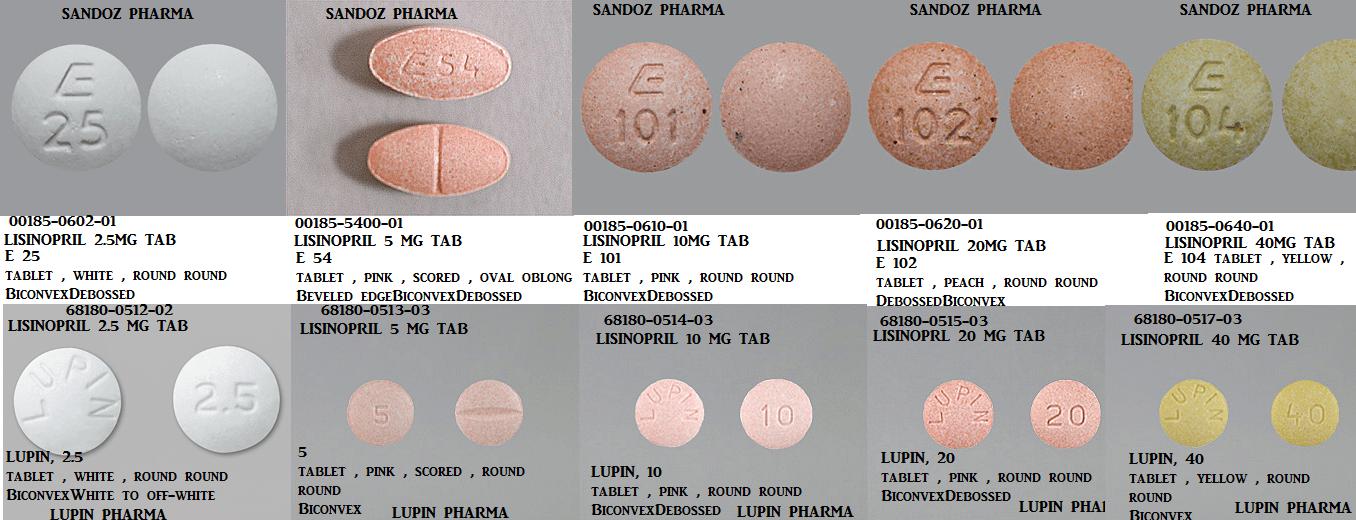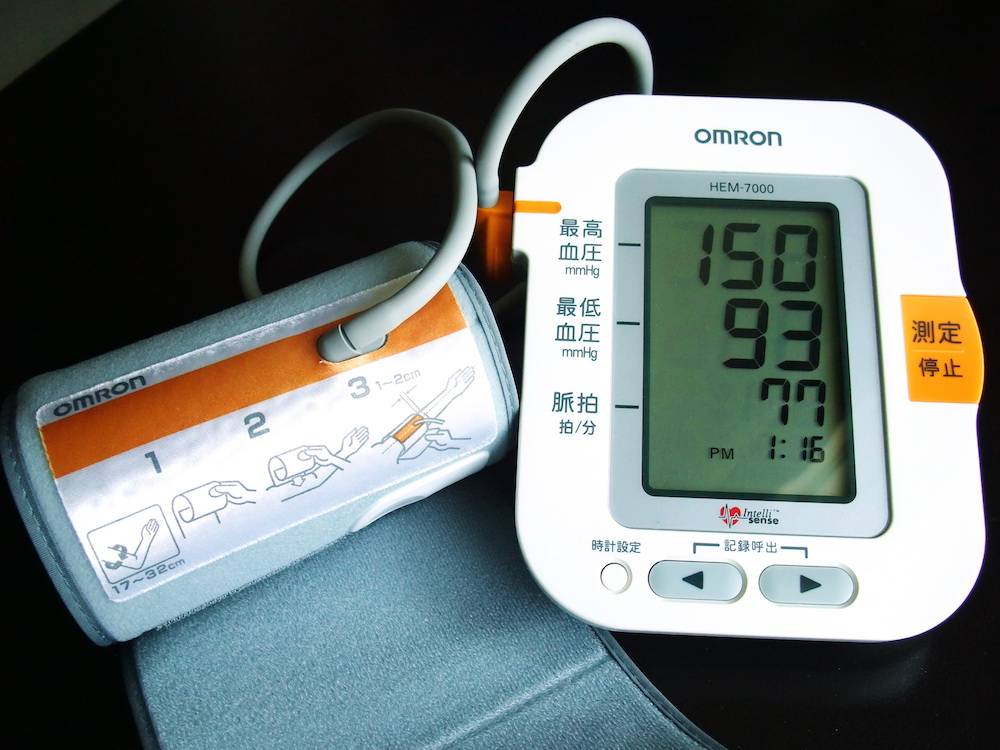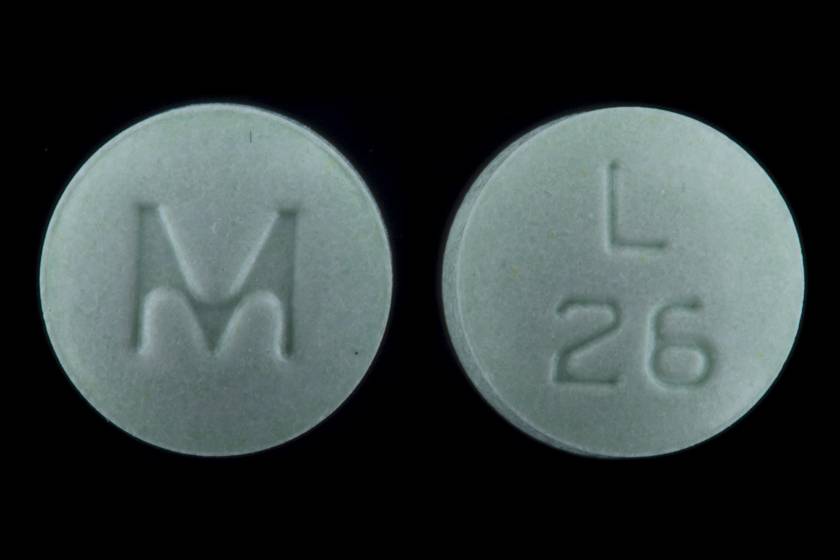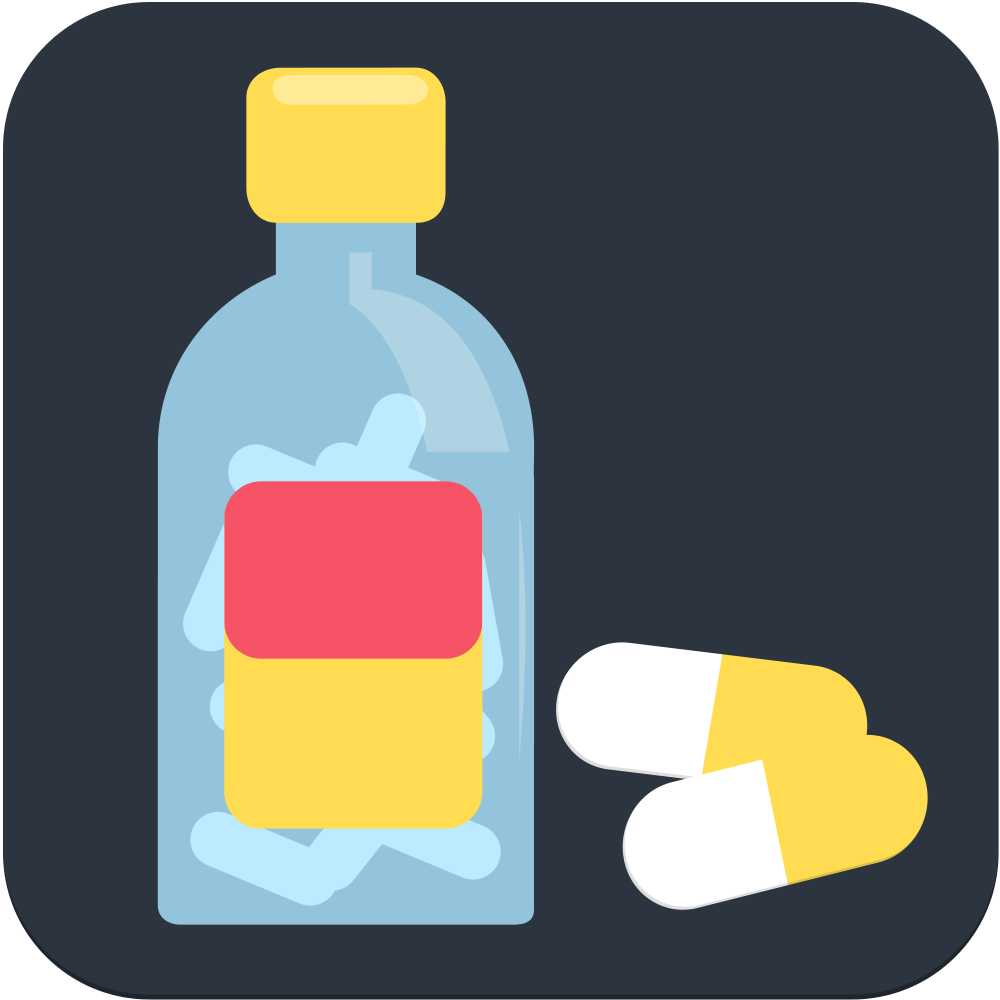Lisinopril is a popular generic ACE inhibitor, used for high blood pressure management and the treatment of other cardiac problems. Side effects can be serious and involve the kidneys, liver, fetal toxicity, low blood pressure, edema, and anaphylactoid reactions. Because of this, careful monitoring is important.
Find all top-line Lisinopril facts below, including definition, appearance, warnings, interactions, contraindications, precautions, dosage, and more.
What is Lisinopril?
Lisinopril is a popular generic Angiotensin Converting Enzyme inhibitor (or ACE inhibitor).
It’s used for high blood pressure management for anyone over the age of six.
It’s also used to improve survival changes after a heart attack and as a congestive heart failure treatment.
It has several side effects, having to do with kidney function, liver function, and edema.
Appearance of Lisinopril
Lisinopril comes in lots of different shapes and sizes depending on dosage and manufacturer. The image below shows only a few.

Brand Names for Lisinopril are Prinivil, Zestril, and Qbrelis.
Available Dosage Sizes: 5 mg, 10 mg, 20 mg
Uses of Lisinopril
Lisinopril is an Angiotensin Converting Enzyme or ACE inhibitor, used for:
Lowering High Blood Pressure in patients six years old or older. Lisinopril is used with the goal of decreasing mortality risk for those at highest risk. The goal is to decrease the chance of serious and/or fatal cardiovascular events, mostly including strokes and myocardial infarctions.
Acute Myocardial Infarction Recovery. Lisinopril is used to lower mortality risk in stable patients 24 hours after an event, as one component of overall recovery therapy.
Heart Failure. Lisinopril is used to decrease heart failure signs and symptoms in patients who don’t respond well to digitalis and diuretics.
What to Monitor

Lisinopril can cause several kidney-related and other health problems. These include Fetal Toxicity, Impaired Renal Function, Angioedema and Anaphylactoid Reactions, Hyperkalemia, Hypotension, and Hepatic Failure.
Because of these risks, it’s vital to monitor:
- Renal function. Lisinopril can cause acute renal failure in some cases.
- Pregnancy status, such as with frequent pregnancy tests. If pregnancy is detected, discontinue Lisinopril as soon as possible, because of the risk to fetal renal function.
- Serum potassium. ACE inhibitors like Lisinopril can cause hyperkalemia, especially in those with diabetes mellitus and other conditions.
- Blood pressure, especially in patients at risk of hypotension from dialysis or conditions like ischemic heart disease.
- Watch for signs of jaundice, since ACE inhibitors can cause elevated hepatic enzymes and jaundice in some patients.
- Watch for changes in facial appearance, airway, abdominal pain, vomiting, and anaphylactoid reactions. Lisinopril can cause angioedema of the head, neck, and intestines in some cases. It can also cause anaphylactoid reactions during either dialysis or toxin desensitization.
Lisinopril Warnings
Lisinopril can cause several adverse reactions, mostly stemming from renal impairment or anaphylaxis. To lower the risks, see the facts in the “What to Monitor” section above. The list of warnings includes:
Fetal Toxicity. Lisinopril can adversely affect fetal renal function, increasing morbidity.
Impaired Renal Function. Lisinopril can cause changes in renal function, including acute renal failure.
Angioedema and Anaphylactoid Reactions. ACE inhibitors can cause angioedema of the extremities, head, face, and intestines, especially in patients with a history of airway surgery. It can also cause anaphylactoid reactions in some patients.
Hyperkalemia. Lisinopril can cause high blood potassium, especially in those with reduced kidney function or those taking potassium supplements.
Hypotension. Lisinopril can cause dangerously low blood pressure, especially for renal dialysis patients, high-dose diuretic therapy patients, or those with ischemic heart disease.
Hepatic Failure. ACE inhibitors like Lisinopril can cause jaundice and/or hepatic failure.
Lisinopril Drug Interactions

Many of the Lisinopril drug interactions have to do with kidney function. The popular drug can interact with diuretics, NSAIDs, antidiabetic meds, lithium, Losartan, mTOR inhibitors, and injectable gold. See the full Lisinopril interaction facts below.
- Diuretics. Simultaneous use of Lisinopril and diuretics can reduce blood pressure excessively. Reducing the dosage of either medication or increasing salt intake can help.
- NSAIDs and COX-2 Inhibitors. In the elderly, volume-depleted, or those with compromised renal function, the combination of Lisinopril and NSAIDs (including COX-2 inhibitors) can cause renal function deterioration and/or failure.
- Antidiabetics. Lisinopril can conflict with some antidiabetic medicines like insulin or oral hypoglycemic agents, causing risk of hypoglycemia.
- Lithium. Taking Lisinopril with lithium can cause lithium toxicity. When administering both drugs, monitor serum lithium levels.
- Dual Blockade of the RAS. Losartan can conflict with Lisinopril, causing acute kidney injury and hyperkalemia, with no increased benefit from dual therapy.
- mTOR Inhibitors. Lisinopril may conflict with mTOR inhibitors, causing elevated risk of angioedema.
- Gold. Injectable gold can interact with Lisinopril, causing nitritoid reactions with symptoms like nausea, vomiting, facial flushing and hypotension.
Lisinopril Contraindications
Lisinopril is contraindicated for patients with:
Angioedema, either Idiopathic or hereditary.
A history of angioedema (or history of hypersensitivity connected with previous ACE inhibitor use).
Who Should Avoid Lisinopril?
Lisinopril is safe for the vast majority of patients. However, pregnant or nursing mothers, patients with a history of angioedema, and people with high potassium levels should avoid this medication.
People with kidney or liver disease may need to avoid taking Lisinopril or be monitored carefully by a physician.
- Pregnant or nursing mothers should avoid taking Lisinopril.
- Those with angioedema or with a history of angioedema shouldn’t take Lisinopril.
- Patients with kidney problems may need to avoid Lisinopril or receive careful monitoring..
- People with liver disease may need to avoid Lisinopril.
- Those with high blood-potassium levels shouldn’t take Lisinopril.
Side Effects

Lisinopril side effects concern the liver, kidneys, blood pressure, edema, and anaphylactoid reactions. The drug causes a slightly elevated risk of myocardial infarction. Less serious side effects are fatigue, blurred vision, and mental confusion.
Serious Side Effects
Serious side effects of Lisinopril may include kidney trouble, liver problems, angioedema, and abnormal blood pressure (either low or high). Other possible effects are elevated potassium levels (hyperkalemia), heart failure, and acute myocardial infarction.
Some patients experience anaphylactoid effects or angioedema in the head, neck, or intestines. To decrease the risk of several of these problems, see the sections above on What to Monitor, Warnings, and Contraindications.
Common Side Effects
Common Lisinopril side effects include fatigue, light-headedness, constipation, dry mouth, gout, skin flushing, blurred vision, tinnitus, impotence, fever-like symptoms, and mental confusion.
How to Take Lisinopril
Take Lisinopril in the exact way your doctor prescribed it. Follow the instructions on the prescription label. Never take more or less of this med than prescribed, or for longer or shorter periods.
Take each dose with a full glass of water, with or without food. Make sure your blood pressure is checked often while taking Lisinopril, and drink plenty of water.
Don’t stop taking the drug if you feel better. In the event you need surgery, tell the surgeon you’re taking Lisinopril. Always store it in a dry place at room temperature.
Lisinopril and alcohol should not be mixed because when ACE inhibitors such as Lisinopril and alcohol are combined, they can cause dangerously low blood pressure. When taking Lisinopril, it is, therefore recommended to avoid alcohol.
How to Dispose of Lisinopril

As always, dispose of unused or expired medications like Lisinopril by transferring them to the appropriate medical waste disposal container. Then dispose of the drug in compliance with local and Federal laws.
To ensure compliance, work with a reliable partner. MedPro Waste Disposal has the expertise to handle any medical waste disposal task reliably, and the low, predictable rates to save real money for any private practice. Want to see how much you could be saving? See this handy savings calculator.
Precautions
Lisinopril is a powerful ACE inhibitor that’s very effective in lowering blood pressure. For most patients, it’s relatively safe to take. However, paying attention to the facts below will help mitigate the risk of its potentially serious side effects and reactions.
- Monitoring patients on Lisinopril is vital. That’s because the drug can cause kidney and liver problems, lower blood pressure, and cause angioedema and anaphylactoid reactions. Doctors should monitor renal function, serum potassium, and blood pressure. Patients should also be observed for signs of angioedema or anaphylaxis.
- Avoid drinking alcohol with Lisinopril, since it can lower your blood pressure further and increase some side effects. Also avoid dehydration and taking potassium supplements.
- Make sure to drink plenty of water while taking this medication.
- Diabetics who take Lisinopril should monitor closely for hypoglycemia, especially for the first month.
- Pregnancy. Don’t take Lisinopril if you are pregnant or might become pregnant. If you become pregnant, stop taking the drug right away.
- If you notice facial swelling, trouble breathing, intestinal discomfort, or light-headedness, tell your doctor right away.
- Patients who are unstable after an acute myocardial infarction should avoid taking Lisinopril.
Missed Doses
If you miss a dose of Lisinopril, take it when you remember it. Skip the missed dose only if your next scheduled dose is due. Don’t take an extra dose to make up for a missed dose.
Overdose
If you overdose on Lisinopril, seek emergency medical care right away, or call the Poison Control Center’s Help Line at 800-222-1222.
Dosage Information

Dosage for Lisinopril generally starts at 10 mg per day, then increases to a max of 40 mg per day for adult hypertension. Dosages for adult hypertension, child hypertension, Myocardial Infarction, and congestive heart failure all differ.
Hypertension Dosage
For hypertension, adults should start at 10 mg once daily. If on a diuretic, cut the dose to 5 mg. Dosage can increase up to 40 mg per day based on results. For pediatric patients, dosage is 0.07 mg/kg, to a max of 5 mg once a day.
Myocardial Infarction Dosage
The dose for Acute Myocardial Infarction (MI) is 5 mg in the first 24 hours, then 5 mg in the next 24 hours, then 10 mg once per day.
Heart Failure Dosage
Adult patients with heart failure should start with a dose of 5 mg once a day. If hyponatremia is present, cut the dose to 2.5 mg once per day. Increase dosage as tolerated up to a max of 40 mg once per day.
Dosage for Patients with Renal Impairment
For patients with creatinine clearance of 10-30 mL/min, cut the first dose in half. For those with creatinine clearance less than 10 mL/min, cut the initial dose to 2.5 mg once per day.
Storage
Store Lisinopril at room temperature (59°-86°F or 15°-30°C). Keep it away from heat and moisture and dispense it in a tight container.
Lisinopril Recalls
There have been six significant recalls of Lisinopril from 2012 through 2017, and 29 total FDA recalls of the popular generic. The biggest was the 2015 recall affecting 1.4 million bottles of the drug from Wockhardt Pharmaceuticals.
Other companies involved in recalls of the medication include Lupin Pharmaceuticals, Accord Healthcare, Qualitest, Sandoz, AidaPak, Attix, Aurobindo Pharma, West-ward, Mylan, and GSMS.
For more detailed facts on all Lisinopril recalls, see this post.
Manufacturers of Lisinopril
The FDA approved the use of Lisinopril for hypertension in 1987. It entered generic status in 2002. With the combination of its popularity and long-time status as a generic drug, dozens of manufacturers make and market it.
Here’s a short list of Lisinopril manufacturers:
- Astra-Zeneca Pharma India
- Aurobindo Pharma
- Gulf Oil Corporation
- Lee Pharma
- Cardinal Health
- Major Pharmaceuticals
- Blenhiem Pharmacal
- Direct Rx
- Rxchange
- Northwind Pharmaceuticals
Lisinopril Alternatives
There are several other ACE inhibitors available in the U.S. as alternatives to Lisinopril. These substitutes all provide the same function of inhibiting the angiotensin-converting enzyme.
All ACE inhibitors work to lower blood pressure by inhibiting the ACE enzyme, with the result that the blood vessels dilate. Some other common ACE inhibitors are:
- Captopril
- Benazepril
- Moexipril
- Enalapril
- Quinapril
- Perindopril
- Trandolapril
- Ramipril
Conclusion
Lisinopril is a popular generic drug of the ACE Inhibitor class. It works to lower blood pressure by blocking the ACE enzyme, thus allowing blood vessels to dilate. It’s used to manage hypertension in patients over six years old, and to help stable patients recover after a myocardial infarction, and to treat congestive heart failure.
It has several serious side effects, including kidney problems, liver problems, low blood pressure, and angioedema of the head, neck, and intestines. Because of this, careful monitoring is required when using this medication. The article above provides the full range of Lisinopril facts.
Want more great info for your medical practice? Here’s a tip: find out how much money you could save on biohazard waste disposal with MedPro Waste Disposal’s handy savings calculator. MedPro provides predictable service at low, stable rates, plus HIPAA compliance training to lower your risk.
Source: Merck Product Circulars.


